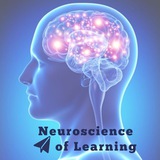It’s important to acknowledge that powerful emotions like rage and fear can lend us power in a crisis. They can give a petite woman the strength to move a car and free a trapped child or drive a soldier against normal instinct to run into a hail of bullets to save a comrade in jeopardy. Such rapid-response brain circuitry undoubtedly played a role when U.S. Air Force Staff Sargent Spencer Stone and two friends subdued a fellow train passenger — a terrorist armed with an AK-47 and a knife — in France last summer. “I really wasn’t thinking,” Stone told me. “It wasn’t a conscious decision — I just went. It was automated.” Stone and fellow Americans Anthony Sadler and Alek Skarlatos, were all recognized for heroism in that case. But sometimes this automatic lifesaving response can misfire and lead to a story of unexpected tragedy rather than heroism.
🆔@neurocognitionandlearning
>>Click here to continue<<

